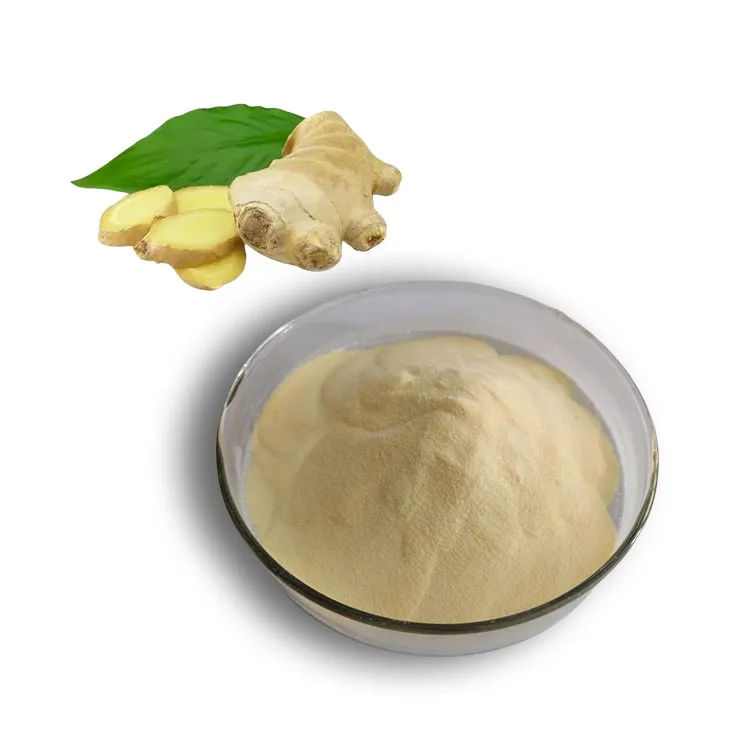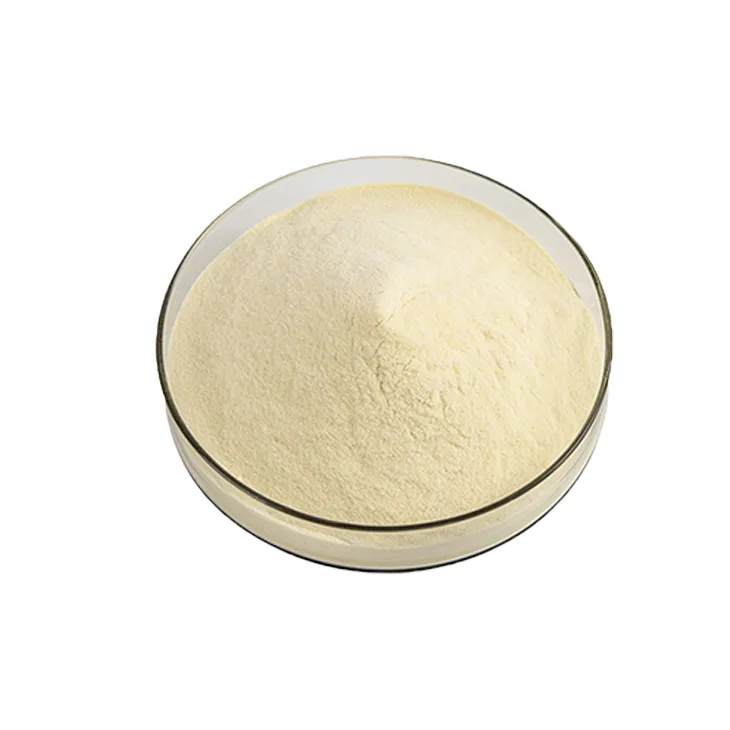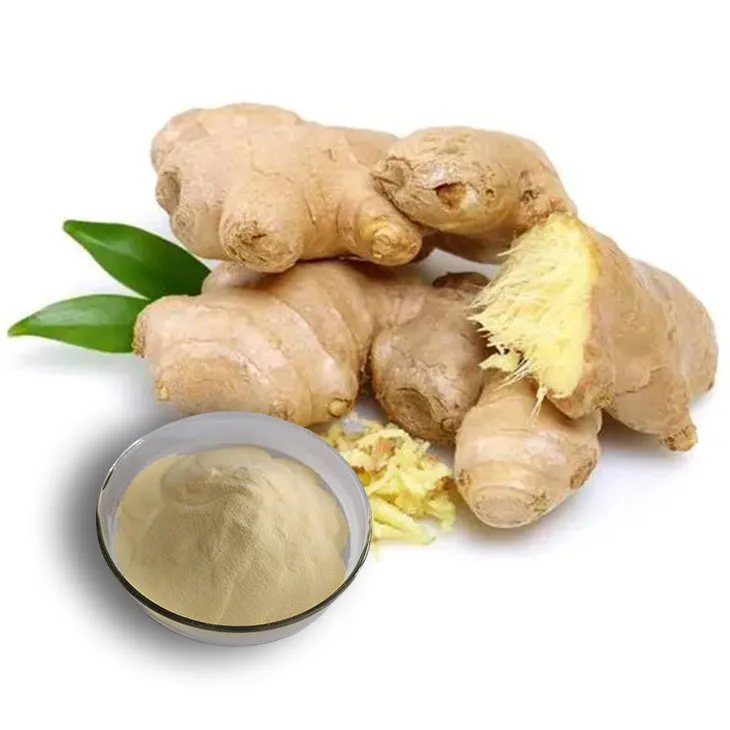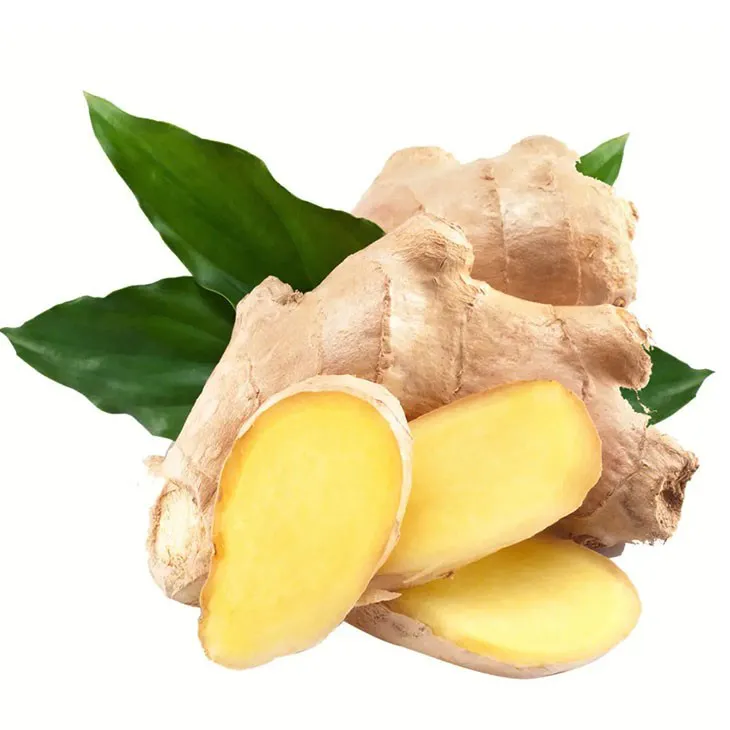- 0086-571-85302990
- sales@greenskybio.com
Ginger extract: What are its benefits and how to take it?
2024-11-14

Introduction
Ginger has been used for centuries in traditional medicine across various cultures. Ginger Extract, which is concentrated form of ginger, is becoming increasingly popular due to its numerous health benefits. It contains a rich variety of bioactive compounds that offer a range of positive effects on the human body.

The Bioactive Compounds in Ginger Extract
Ginger Extract is loaded with several important bioactive compounds. Gingerols are one of the main components, which are responsible for many of ginger's characteristic properties. They are phenolic compounds that contribute to ginger's antioxidant, anti - inflammatory, and anti - microbial activities. Another significant compound is shogaols, which are formed when ginger is dried or cooked. Shogaols are more potent than gingerols in some aspects, such as their anti - inflammatory effects.

Benefits of Ginger Extract
1. Aids Digestion
Ginger extract can play a crucial role in improving digestion. It helps to stimulate the secretion of digestive juices in the stomach, including gastric juices, bile, and saliva. This increased secretion aids in the breakdown of food, making it easier for the body to absorb nutrients. For example, it can help in the digestion of proteins, fats, and carbohydrates. Additionally, ginger extract has been shown to relieve gastrointestinal discomfort, such as bloating and gas. It can also help in cases of indigestion by soothing the stomach lining and reducing irritation.
2. Reduces Nausea
One of the well - known benefits of ginger extract is its ability to reduce nausea. It can be effective in various forms of nausea, including morning sickness during pregnancy, motion sickness, and nausea caused by chemotherapy. The exact mechanism by which it reduces nausea is not fully understood, but it is believed to act on the central nervous system and the digestive system. Ginger extract may also help to regulate the activity of the stomach muscles, preventing the abnormal contractions that can lead to nausea.
3. Anti - Inflammatory Properties
The anti - inflammatory properties of ginger extract are very significant. Inflammation is at the root of many chronic diseases, such as arthritis, heart disease, and certain cancers. Ginger extract can help to reduce inflammation in the body by inhibiting the production of inflammatory cytokines and enzymes. For example, it can suppress the activity of cyclooxygenase - 2 (COX - 2), an enzyme that is involved in the production of inflammatory prostaglandins. By reducing inflammation, ginger extract may also help to relieve pain associated with inflammatory conditions.
4. Antioxidant Effects
Ginger extract is a rich source of antioxidants. Antioxidants are substances that can neutralize free radicals in the body. Free radicals are unstable molecules that can cause damage to cells, leading to various diseases and aging. The antioxidants in ginger extract, such as gingerols and shogaols, can scavenge free radicals and protect cells from oxidative damage. This antioxidant activity may also contribute to ginger's anti - inflammatory and anti - cancer properties.
5. May Help with Diabetes Management
Some research suggests that ginger extract may be beneficial for diabetes management. It may help to lower blood sugar levels by improving insulin sensitivity. Ginger extract can also help to regulate the metabolism of carbohydrates, fats, and proteins in the body, which is important for maintaining stable blood sugar levels. However, more research is needed to fully understand the role of ginger extract in diabetes treatment.
6. Cardiovascular Health
Ginger extract may have positive effects on cardiovascular health. It can help to lower blood pressure by relaxing the blood vessels. This reduced blood pressure can decrease the risk of heart disease and stroke. Additionally, ginger extract may help to lower cholesterol levels by reducing the absorption of cholesterol in the intestines and increasing the excretion of cholesterol from the body.

How to Take Ginger Extract
1. Ginger Extract Supplements
Ginger extract is available in supplement form, such as capsules or tablets. These supplements are a convenient way to consume ginger extract, especially for those who do not like the taste of ginger or find it difficult to incorporate fresh ginger into their diet. When taking ginger extract supplements, it is important to follow the recommended dosage instructions on the product label. The typical dosage may vary depending on the brand and the intended use, but generally, a daily dose of 500 - 1000 mg of ginger extract is considered safe for most adults.
2. Ginger Tea
Ginger tea is a popular way to consume ginger extract. To make ginger tea, you can start by grating a small piece of fresh ginger root (about 1 - 2 inches). Then, bring a cup of water to a boil and add the grated ginger. Let it simmer for about 5 - 10 minutes, depending on how strong you like the flavor. Strain the tea into a cup and add honey or lemon if desired. You can drink ginger tea several times a day, either hot or cold. Ginger tea is not only a delicious way to enjoy the benefits of ginger extract, but it can also be a soothing beverage, especially during cold and flu season.
3. Adding to Food
Ginger extract can also be consumed by adding ginger to food. Ginger is a versatile spice that can be used in a variety of dishes, such as stir - fries, curries, soups, and baked goods. You can use fresh ginger root, grated or minced, or you can use dried ginger powder. Adding ginger to your meals not only enhances the flavor but also provides the health benefits of ginger extract. For example, adding ginger to a stir - fry can add a spicy and refreshing flavor while also aiding digestion.
4. Ginger Tincture
Ginger tincture is another form of ginger extract that can be taken. To make a ginger tincture, you will need fresh ginger root, high - proof alcohol (such as vodka), and a glass jar. Chop the ginger root into small pieces and place them in the jar. Cover the ginger with alcohol, making sure that all the ginger is submerged. Seal the jar and let it sit in a cool, dark place for about 2 - 4 weeks, shaking the jar occasionally. After that, strain the liquid through a cheesecloth or coffee filter. The resulting tincture can be taken by adding a few drops to a glass of water or juice. Ginger tincture is a more concentrated form of ginger extract and should be used in moderation.

Precautions and Side Effects
While ginger extract is generally safe for most people, there are some precautions to keep in mind. In some cases, ginger extract may cause mild side effects, such as heartburn, diarrhea, or mouth irritation. These side effects are usually rare and mild. However, if you experience any severe or persistent side effects, you should stop taking ginger extract and consult a healthcare provider.
Ginger extract may also interact with certain medications. For example, it may increase the risk of bleeding when taken with blood - thinning medications such as warfarin. It may also interact with medications for diabetes or high blood pressure. Therefore, if you are taking any medications, it is important to talk to your doctor before starting to take ginger extract.
Conclusion
Ginger extract offers a wide range of health benefits, from aiding digestion and reducing nausea to having anti - inflammatory and antioxidant properties. There are several ways to consume ginger extract, including through supplements, tea, food, and tinctures. However, it is important to be aware of the precautions and potential side effects, especially if you are taking medications. By incorporating ginger extract into your daily routine in a safe and appropriate way, you can potentially improve your overall health and well - being.
FAQ:
What are the main bioactive compounds in ginger extract?
Ginger extract contains several important bioactive compounds. One of the main ones is gingerol, which is responsible for many of ginger's characteristic properties such as its pungent flavor and anti - inflammatory effects. Other compounds include shogaol, which is formed when gingerol is dehydrated, and zingerone. These compounds work together to provide the various health benefits associated with ginger extract.
How exactly does ginger extract aid digestion?
Ginger extract can help digestion in multiple ways. It stimulates the production of saliva, which begins the process of breaking down food in the mouth. In the stomach, it promotes the secretion of gastric juices that are necessary for proper digestion of food. It also has a carminative effect, which means it can help relieve gas and bloating by promoting the movement of food through the digestive tract.
Can ginger extract be used to relieve morning sickness?
Yes, ginger extract can be effective in relieving morning sickness. Its anti - nausea properties make it a popular natural remedy for pregnant women experiencing nausea and vomiting. It can be taken in various forms such as ginger tea or ginger capsules. However, pregnant women should always consult their healthcare provider before taking any new supplement.
What is the best way to take ginger extract for anti - inflammatory benefits?
For anti - inflammatory benefits, ginger extract can be taken in different forms. One option is to take ginger capsules, which are convenient and provide a standardized dose. Another way is to drink ginger tea, which can be made by steeping fresh ginger slices in hot water. Ginger can also be added to food, like in stir - fries or soups. The key is to consume it regularly to experience its anti - inflammatory effects.
Are there any side effects of taking ginger extract?
While ginger extract is generally safe for most people, some may experience side effects. In large amounts, it can cause heartburn, diarrhea, or abdominal discomfort. People taking blood - thinning medications should be cautious as ginger may increase the risk of bleeding. Also, those with gallstone disease should consult a doctor before taking ginger extract as it may stimulate bile production.
Related literature
- The Bioactive Compounds in Ginger and Their Potential Health Benefits"
- "Ginger Extract: A Review of Its Digestive and Anti - Nausea Properties"
- "Anti - Inflammatory Effects of Ginger Extract: Mechanisms and Clinical Applications"
- ▶ Hesperidin
- ▶ citrus bioflavonoids
- ▶ plant extract
- ▶ lycopene
- ▶ Diosmin
- ▶ Grape seed extract
- ▶ Sea buckthorn Juice Powder
- ▶ Beetroot powder
- ▶ Hops Extract
- ▶ Artichoke Extract
- ▶ Reishi mushroom extract
- ▶ Astaxanthin
- ▶ Green Tea Extract
- ▶ Curcumin Extract
- ▶ Horse Chestnut Extract
- ▶ Other Problems
- ▶ Boswellia Serrata Extract
- ▶ Resveratrol Extract
- ▶ Marigold Extract
- ▶ Grape Leaf Extract
- ▶ blog3
- ▶ blog4
- ▶ blog5
-
Organic Tongkat Ali extract powder factory.
2024-11-14
-
How to make powder with ashwagandha extract.
2024-11-14
-
Rosehip extract manufacturers from China.
2024-11-14
-
The best cat's claw extract in nature.
2024-11-14
-
Chinese Dandelion Leaf Extract Suppliers.
2024-11-14
-
Beetroot juice Powder
2024-11-14
-
Aminolevulinic acid
2024-11-14
-
Quercetin
2024-11-14
-
Beta Carotene
2024-11-14
-
Coconut Water Powder
2024-11-14
-
Gynostemma pentaphyllum extract
2024-11-14
-
Saw Palmetto Extract
2024-11-14
-
Stevia Extract
2024-11-14
-
Andrographis Paniculata Extract Powder
2024-11-14
-
Bitter Melon Extract
2024-11-14





















